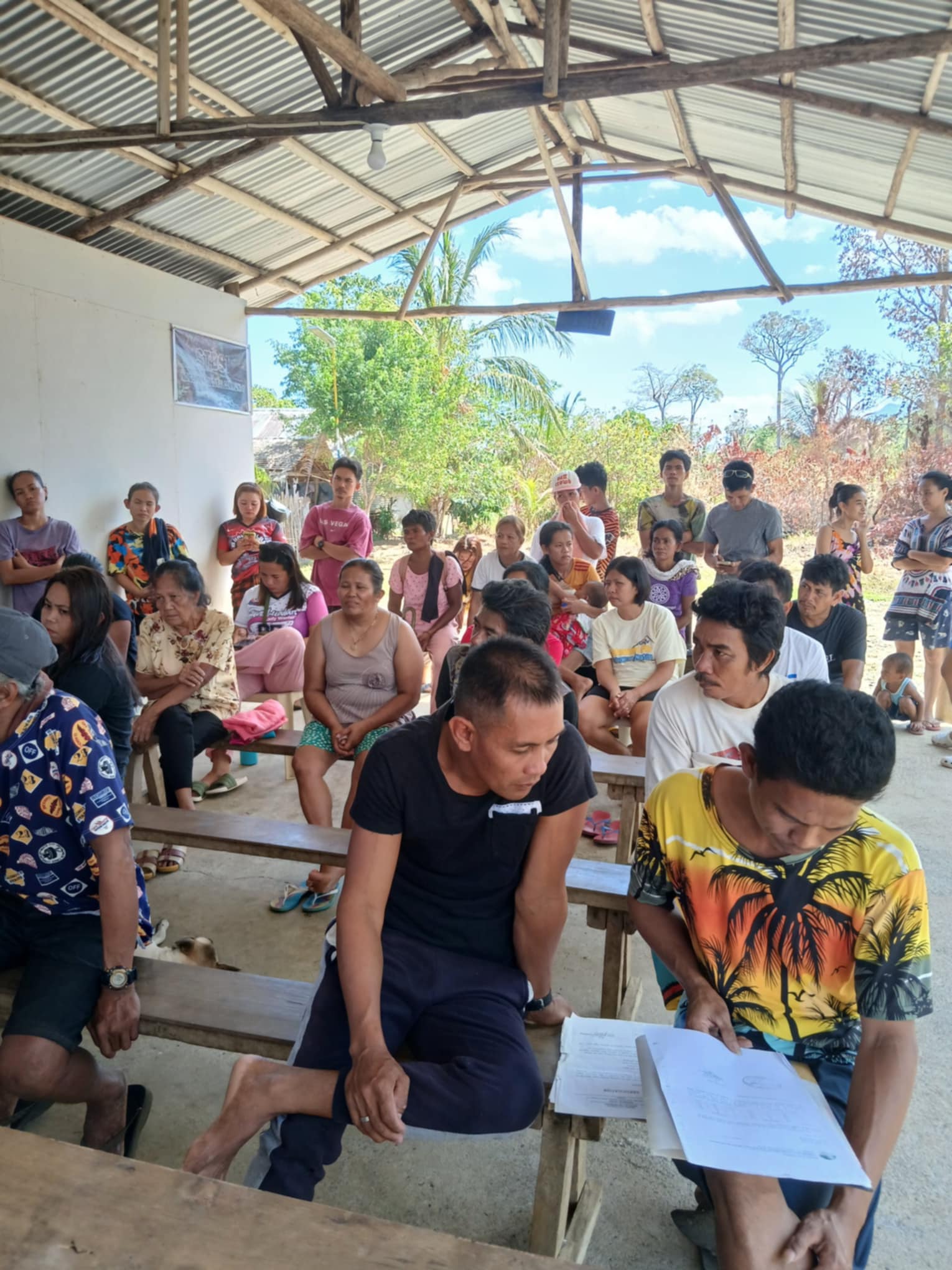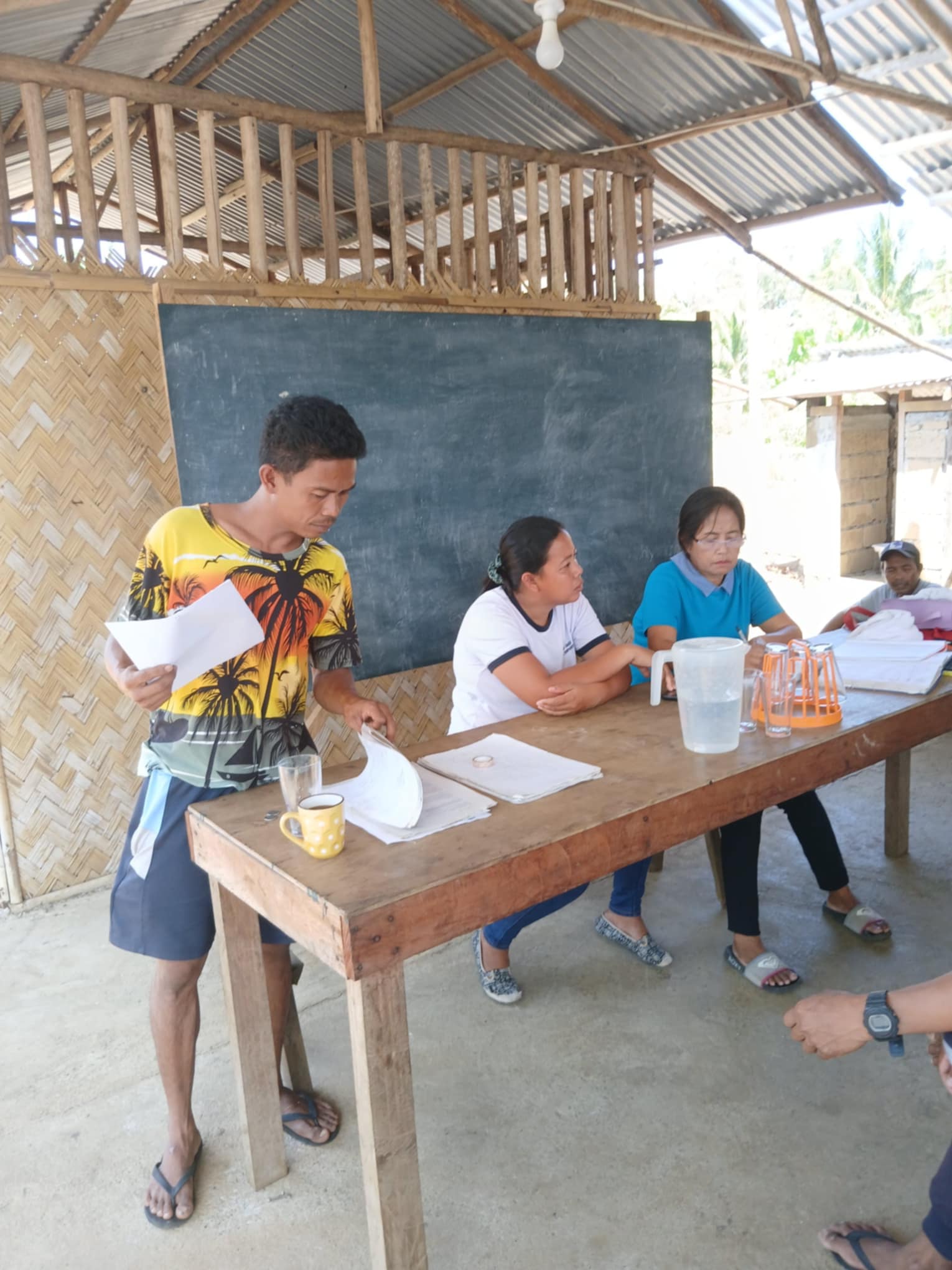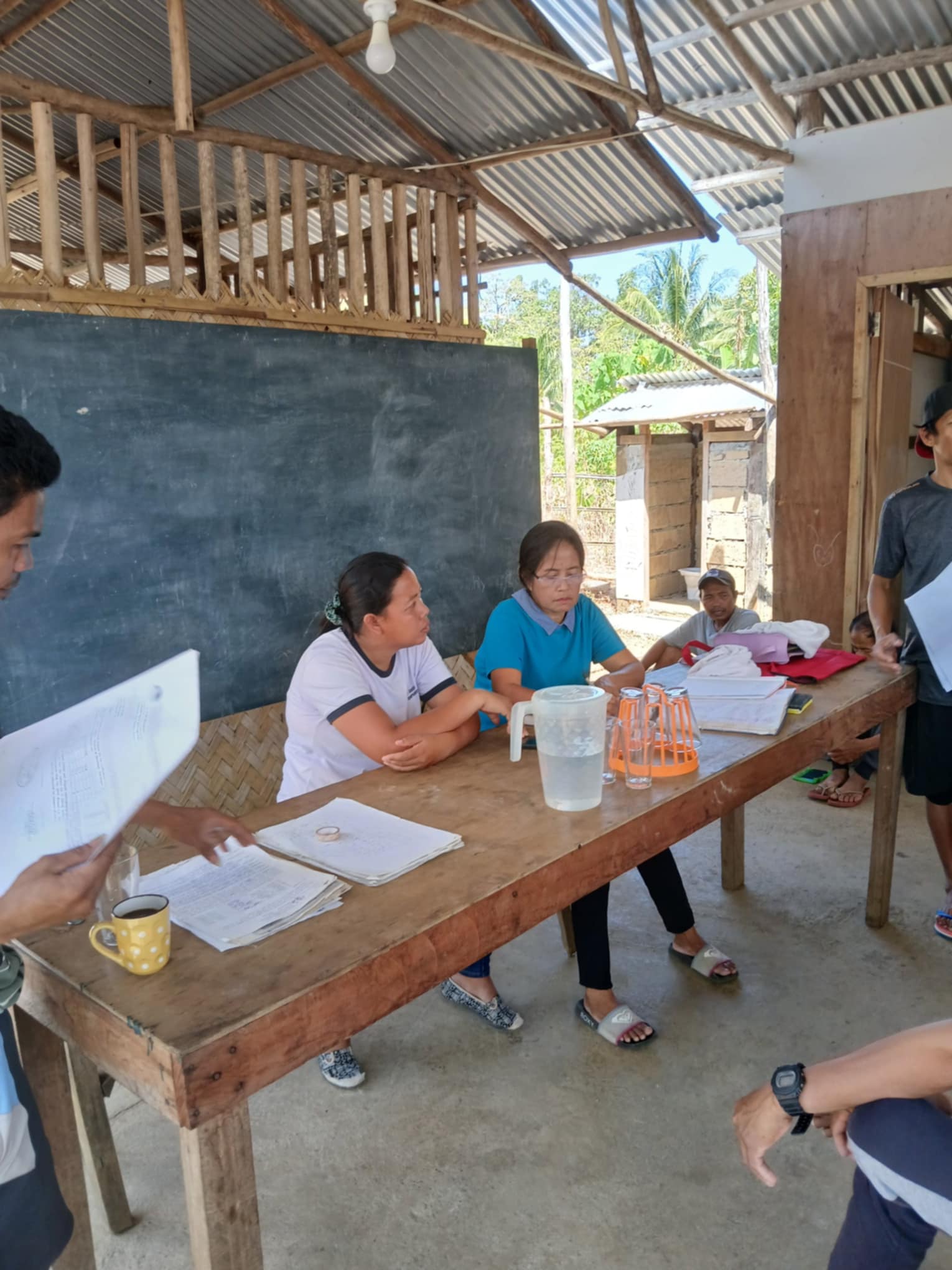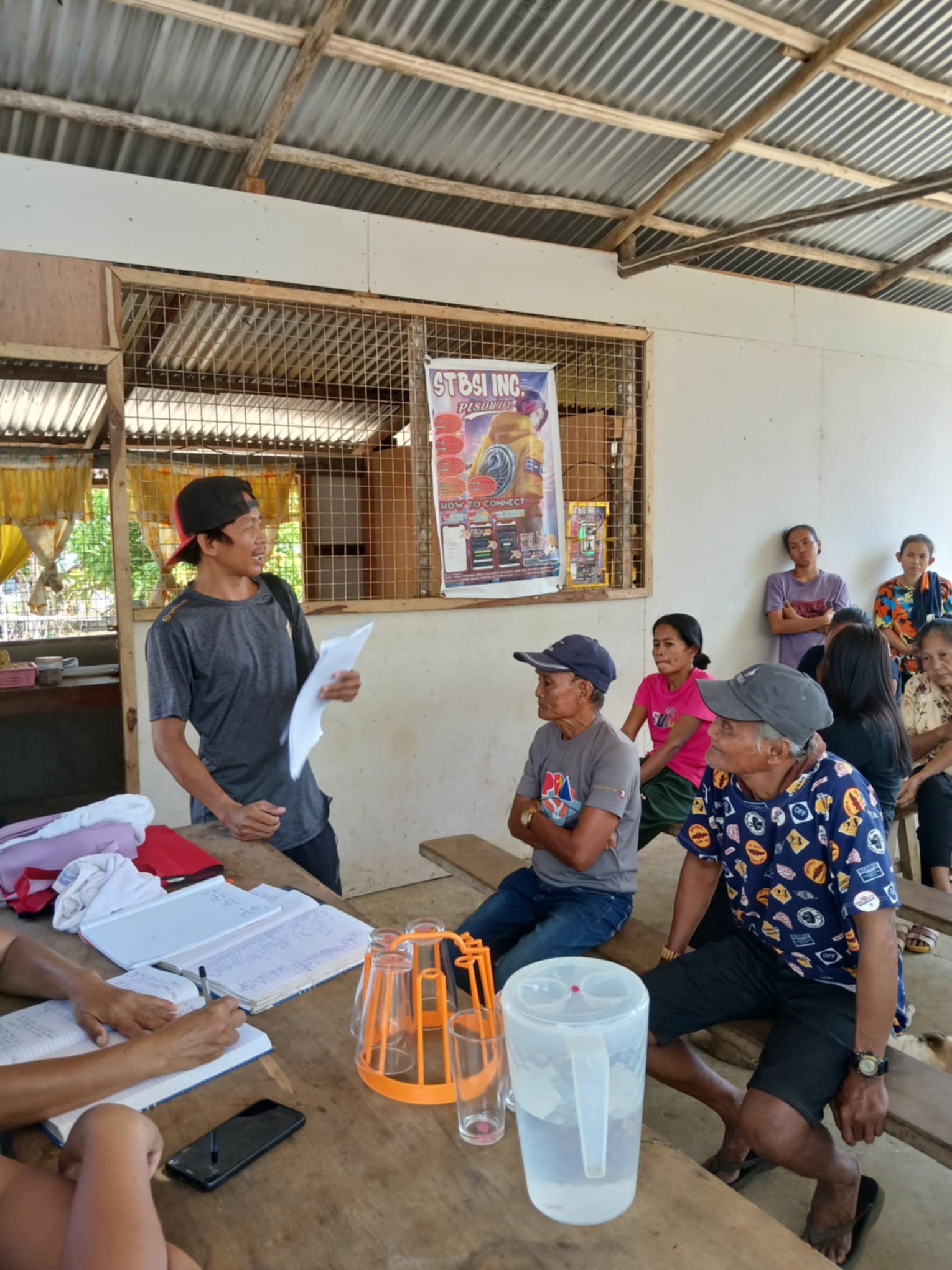Proactively Protecting Ancestral Land in the Philippines: A Tagbanua Community’s Fight for Justice





In early 2024, a Tagbanua Indigenous community faced a critical challenge when a retired soldier claimed ownership of five hectares of their ancestral land. The community, recognizing the potential loss of their homes and livelihoods, decided to take collective action to protect their ancestral domain.
The community is located in Barangay Bualbualan, Simpokan, Puerto Princesa City in the Philippines. From the outset, the community organized meetings to discuss the land claim and strategize their response. They reviewed ancestral land documents and identified legal and procedural steps necessary to challenge the claim.
Key Tagbanua community members took the lead in preparing sworn statements that detailed their long-standing presence and stewardship of the land. These statements, along with records confirming that the land is part of the ancestral domain of the Tagbanua communities—encompassing approximately 49 000 hectares, including ancestral waters—and classified as forest land (making it ineligible for private ownership), formed the foundation of their case.
The Tagbanua community reached out to government agencies to assert their rights. They wrote to the Department of Environment and Natural Resources (DENR) to verify land classifications and to the National Commission on Indigenous Peoples (NCIP) to confirm the boundaries of their ancestral domain. Persistent follow-ups and documentation ensured that their concerns remained on the agenda of relevant authorities. Through their efforts, a formal complaint was submitted to the DENR, seeking the cancellation of the title held by said individual.
Recognizing the complexity of the situation, the Indigenous community sought legal counsel to strengthen their position. They engaged a trusted lawyer who guided them in navigating the legal process. The lawyer’s involvement was critical, but the community remained central to every step—actively participating in the preparation of evidence and ensuring their voices were heard.
Throughout this process, the Tagbanua displayed resilience. They overcame significant challenges, including intimidation by individuals with power and influence. Community leaders remained steadfast, coordinating efforts and rallying support from within their ranks. Their determination not only delayed potential displacement but also sent a strong message about their commitment to protecting their ancestral lands and waters.
This proactive approach reflects the strength and resourcefulness of the Tagbanua. Their efforts have halted planned demolition actions and brought the case to the attention of decision-makers, with outcomes still pending. Moving forward, the community continues to advocate for legal and educational support to address ongoing threats and build capacity for future challenges.
IPRI’s Legal Defense and Sanctuary Fund (LDSF) provided crucial financial support, enabling the Tagbanua community to access legal assistance and navigate administrative processes. This assistance played a supportive role, empowering the community to take the lead in defending their ancestral lands and securing their future.

